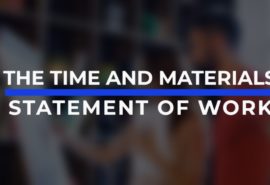Telephone Interviewing Tips

The following are some tips and tricks for you, the interviewee, to keep in mind the next time you have to do a telephone interview.
Usually, the first interview with a new company is a telephone screen (a ‘screener’). It may not even be with the hiring manager or a person you might ultimately work with.
What I want to talk about today is specifically about the screener and how to ace it. I do a lot of screeners and experience lots of beginners who make deadly mistakes, again and again.
Let me just run through a few key issues so you can avoid them.
- Have a good telephone connection. Wherever you’re calling from, try to find a land line. Don’t do the call on your cell phone while you’re walking around outside. Don’t do it in your car while you’re driving. Don’t use headphones. And don’t use the speakerphone, for God’s sakes.
You need to make sure that the signal coming from your end is very, very clear. I find, particularly with folks who are calling in from Africa or Israel or India, interviewees frequently use cheap phones; cheap headphones, or bad VoIP lines. I can barely hear half the answers they’re giving to me. Even if they are great candidates.
- Don’t just walk through your resumé on the call. If the interviewer says, “Tell me about you,” don’t walk through your whole career going back 20 years. Chances are they’ve got your resume in front of them. And even if they don’t, it’s still not a good idea. Instead, talk about how your skills or your recent experience applies to the specific job that’s been described either in the job description that’s online or has been sent to you.
Most likely the interviewer will give you a little intro at the beginning of the call saying, “This is what we need…” or “This is my understanding of the role…” or “This is who we are and this is what we’re looking for…” If so, focus your comments around that description and not the long story about how great you are. The interviewer really wants to hear how your background applies specifically to the job they’ve just described.
It’s also possible when you pick up the phone they’ll immediately say, “So, tell me about you.” If that happens, I would strongly recommend saying, “Before I tell you about me, could you tell me a little bit about your impression about the role and maybe tell me about the company or tell me about the group?”
Focus your comments there.
- Don’t ramble. Most calls I do are only about half an hour long. I’ll ask one simple question like, “Tell me how you estimate requirements.” I’m just looking for a very simple tactical answer to show you’ve done it. Instead, I often get a 15 to 20-minute answer giving me the theory of estimation, a discussion of all the different types of estimation, whether points or hours or T-shirt sizing are better, and who knows what else.
That’s not what I asked. What I asked is how you estimate requirements. Right now. Make your answer short and concise. At the end, ask, “Would you like to hear more details or is that enough?” Even if the interviewer asks for more, keep it short.
- Give examples. Even if your answers are short, use as much color as you can about what happened when you tried to fix a certain problem or use a certain technology or worked with a new team. Tell a real, specific story with a beginning, middle, and end. The end should most often be you being successful, but also don’t shy away from telling stories where things went south. If they did, make sure you include what you will try to do next time to keep it from going wrong.
- Don’t diss your current job or your current manager. I want to know that you’re professional enough to keep your opinions about other companies, other bosses and co-workers to yourself and let’s talk specifically about you and what you did to try to improve whatever situation you were in.
- Avoid talking about money or benefits for as long as possible. The interview process in most companies goes on for a long time. There’s usually a screener and then a WebEx and then an in-person with the hiring manager and usually a bunch of in-person interviews with co-workers after that. Who knows what could happen in that process? One thing you do know is you’re going to learn a lot about the company the culture the specific position who you’re going to be working with. You are going to learn about their experience (or lack of it) and your understanding of the job is going to change.
Holding off on the money conversation is not always possible, of course. If HR gets involved early in the process, they’re going to ask you what your current base is, and you need to answer.
If you have to answer, your answer should be something like: “X is my current base and Y is what I’m looking to receive if I move to this new position in this new city. These are the type of benefits I’m looking for, but I’m certainly flexible and I’d love to talk with you more about it as we go through the interviewing process.”
If you are talking about an hourly position, you will have to reveal what your hourly rate is from the very beginning. If you don’t know what it is you need to figure it out before you get on the call. To not know what your hourly rate is on your initial call for a contracting position is the sign of a beginner. The easy way to figure it out (if you are currently full-time) is to take your base salary and divide it by 2080 (the number of working hours typically in a year). We recommend you then add 30% to cover health insurance and any travel expenses you may have.
- Stop and ask how you are doing. The next tip isn’t so much of a tip it’s just reality. Usually, in a telephone interview, the interviewer knows in the first five minutes whether it’s going to work or not. What do you do? You have to ask stop and ask how you are doing within the first ten minutes of talking. Ask, “Am I talking about the right kind of things do you want more detail you want less?” “Are there any areas or platforms or tools or certifications that I should be talking about that might convince you that I’m the right type of person for this?” These are hard questions to ask early in a call, but you should. It’s possible they’ll come back and say, “You know, what I think you’re too senior for this,” or “I don’t think you have the right certifications for this.” If so, you should know it’s pretty much over. Bring the call to a polite close.
But it’s more likely they’ll say, “I need to hear more details about X.”
If so, deliver.
- Don’t Do It. Finally, and this is my most important tip for interviewing: Just don’t do it. It doesn’t pay to spread your resume across LinkedIn or Indeed or Dice or the others and pray that somebody will come upon it after some keyword search and want to do an interview with you.
Instead of saying “Get me a Scrum Master,” you want hiring managers to say, “Get me Barc Holmes!” or whatever your name is. You want the hiring manager to know you already and want to work with you because they like you and know you’ve got the skills.
And that doesn’t mean to start networking or advertising. Instead, ask yourself, “Who are my friends in the industry right now?” Talk to them first. They may not be able to offer you a job, but they may know somebody who is looking for somebody like you.
Have them introduce you.
It’s good to constantly remind your friends (and I hope that includes past co-workers and bosses) that you are an expert in your field. Periodically send them a note and say, “Hey! have you read this article?” or “Have you looked at this blog that I wrote?” or “Have you seen this series of tweets from this guy that I think is important?” They’ll know that you are part of a community of experts and part of the conversation about new techniques, new tools, and new processes. When they need somebody like you, they’ll remember that you sent them that article a couple of months ago.
Try not to be part of a mass interview, but instead be the person that executives, managers, and your friends call on because you’re the person known to be knowledgeable in a certain area.
Those are my tips for better interviewing and the last one, of course, is to not interview.
Get out there start writing, start making friends, start providing value, and start sharing your wealth.
Related Posts
-
I’ve been reading Lean Startup again. A wonderful book...Nov 13, 2014 / 0 comments
-
How to make your Time and Materials (T&M) contracts with you...Apr 15, 2019 / 0 comments
-
Among other businesses, I own a retail store in Los Angeles....Sep 25, 2018 / 0 comments
Categories
Recent Posts
CONTACT INFO
Welcome to Coral Mountain Consulting, a Deliverse company. We are glad you found us. If you need to contact us, please call or email Barc directly.
Phone: 1-(626) 644-3857
Office: 2122 New York Drive, Altadena, CA 91001








Comments1